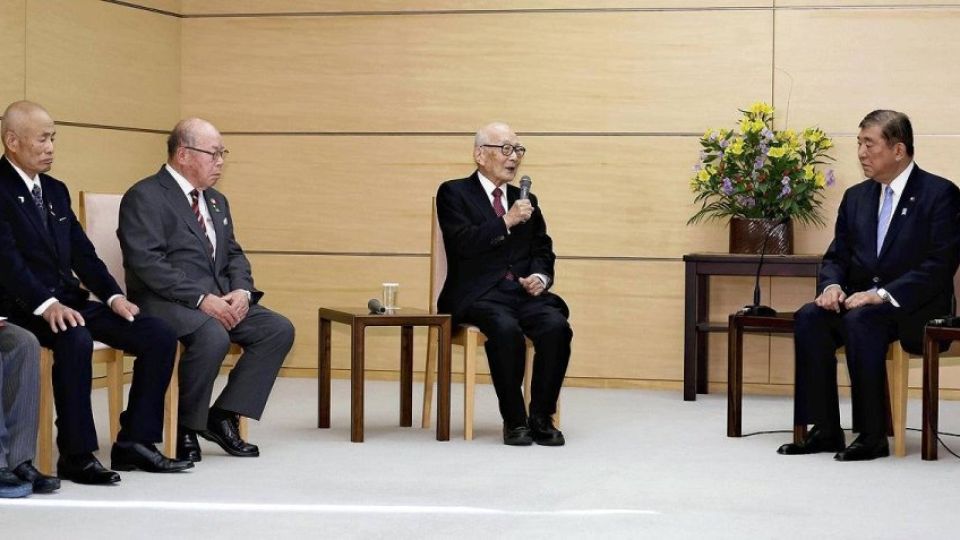January 27, 2025
TOKYO – Prime Minister Shigeru Ishiba has begun making arrangements to forgo participating as an observer at a meeting of signatories to the Treaty on the Prohibition of Nuclear Weapons to be held in the United States in March, it has been learned.
As the security environment surrounding Japan is becoming increasingly severe, Ishiba has concluded that it would be appropriate to take a pragmatic approach based on the importance of deterrence capabilities supported by the U.S. nuclear umbrella, according to several government sources.
Nuclear powers do not participate in the treaty, which prohibits the development and use of nuclear weapons.
The Liberal Democratic Party’s ruling coalition partner Komeito and the Nobel Peace Prize-winning group Nihon Hidankyo (Japan Confederation of A- and H-Bomb Sufferers Organizations) have requested of Ishiba that Japan, a nonsignatory state, participate in the meeting as an observer.
Ishiba was considering the matter carefully, stressing the need to study the case of Germany and other countries that have experience participating as observers.
Germany, as a member of the North Atlantic Treaty Organization, depends on nuclear deterrence. It is believed that domestic political circumstances have played a role in Germany’s decision to participate as an observer, such as the demands by the Greens, a party in the ruling coalition that advocates an anti-nuclear policy as its basic stance.
Japan’s participation as an observer would lead to a decline in trust from Washington, and there is a risk that Japan’s neighboring countries could mistakenly conclude that “Japan does not want defense by U.S. nuclear weapons,” according to the sources. Under such circumstances, Ishiba has concluded that forgoing observer participation would be in the national interest.

